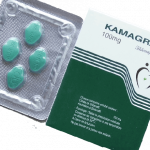Oretic Oral: Uses, Dosage, Side Effects, Interactions

Oretic Oral is an FDA-approved generic brand of Hydrochlorothiazide (HCTZ) a medication used alone or in combination with other medications to treat high blood pressure. Hydrochlorothiazide is used to treat edema (fluid retention; excess fluid held in body tissues) caused by various medical problems, including heart, kidney, and liver disease, and to treat edema caused by using certain medications including estrogen and corticosteroids. Hydrochlorothiazide is in a class of medications called diuretics (‘water pills’).
High blood pressure is a common condition and when not treated, can cause damage to the brain, heart, blood vessels, kidneys, and other parts of the body. Damage to these organs may cause heart disease, a heart attack, heart failure, stroke, kidney failure, loss of vision, and other problems. In addition to taking medication, making lifestyle changes will also help to control your blood pressure. These changes include eating a diet that is low in fat and salt, maintaining a healthy weight, exercising at least 30 minutes most days, not smoking, and using alcohol in moderation.
How Oretic works
Oretic belongs to a class of drugs called thiazide diuretics. A class of drugs is a group of medications that work in a similar way. These drugs are often used to treat similar conditions. It works by causing the kidneys to get rid of unneeded water and salt from the body into the urine. This action keeps your heart from working as hard to pump blood, which lowers blood pressure and reduces swelling.
How should I take Oretic?
Oretic Oral is usually taken once or twice a day. When used to treat edema, Oretic may be taken daily or only on certain days of the week. Follow the directions on your prescription label carefully, and ask your doctor or pharmacist to explain any part you do not understand. Take Oretic exactly as directed. Do not take more or less of it or take it more often than prescribed by your doctor.
Oretic controls high blood pressure but does not cure it. Continue to take hydrochlorothiazide even if you feel well. Do not stop taking hydrochlorothiazide without talking to your doctor.
What are the side effects of Oretic?
Oretic can cause mild or serious side effects. The following list contains some of the key side effects that may occur while taking Oretic. This list does not include all possible side effects.
For more information on the possible side effects of Oretic, or tips on how to deal with a troubling side effect, talk with your doctor or pharmacist.
More common side effects
The more common side effects that can occur with Oretic include:
• blood pressure that’s lower than normal (especially when standing up after sitting or lying down)
• dizziness
• headache
• weakness
• erectile dysfunction (trouble getting or keeping an erection)
• tingling in your hands, legs, and feet
• photosensitivity (a condition where your skin is more sensitive to the sun)
• muscle spasms
• diarrhea
These effects may go away within a few days or a couple of weeks. If they’re more severe or don’t go away, talk with your doctor or pharmacist.
Serious side effects
Call your doctor right away if you have serious side effects. Call 911 if your symptoms feel life-threatening or if you think you’re having a medical emergency. Serious side effects and their symptoms can include the following:
• severe skin reactions such as Stevens-Johnson syndrome and exfoliative dermatitis, with symptoms such as:
o painful skin rash
o skin peeling and blisters
o fever
o mouth sores
• kidney failure, with symptoms such as:
o weakness
o shortness of breath
o tiredness
o confusion
o abnormal heart rate or chest pain
o producing less urine than normal
o increased swelling in your legs, ankles, or feet
• blurred vision, with symptoms such as:
o eye pain
o trouble seeing
• pancreatitis (inflammation in the pancreas), with symptoms such as:
o upset stomach or vomiting
o very bad stomach or back pain.
Oretic may interact with other medications
Oretic oral tablets can interact with several other medications. Different interactions can cause different effects. For instance, some can interfere with how well a drug works, while others can cause increased side effects.
Below is a list of medications that can interact with Oretic. This list does not contain all drugs that may interact with Oretic.
Before taking Oretic, be sure to tell your doctor and pharmacist about all prescriptions, over-the-counter, and other drugs you take. Also tell them about any vitamins, herbs, and supplements you use. Sharing this information can help you avoid potential interactions.
If you have questions about drug interactions that may affect you, ask your doctor or pharmacist.
Barbiturates
If you take these drugs with Oretic, your blood pressure may be lowered too much. You may have symptoms such as feeling dizzy when you stand up after sitting or lying down. Examples of these drugs include:
• phenobarbital
• pentobarbital
Lithium
In general, lithium shouldn’t be taken with Oretic. That’s because Oretic slows the clearance of lithium from your body. This increases your risk of high levels of lithium in your body, which can cause dangerous side effects.
Blood pressure drugs
Taking Oretic with other blood pressure medications can make your blood pressure drop too low. Examples of these drugs include:
• angiotensin-converting enzyme (ACE) inhibitors, such as:
o lisinopril
o fosinopril
o enalapril
• angiotensin receptor blockers (ARBs), such as:
o losartan
o valsartan
o candesartan
• beta-blockers, such as:
o atenolol
o metoprolol
o bisoprolol
• calcium channel blockers, such as:
o amlodipine
o verapamil
o diltiazem.
Cholesterol-lowering drugs
Taking Oretic with certain drugs that lower cholesterol levels may make Oretic less effective. This means it may not work as well to treat your blood pressure or swelling. Examples of these cholesterol drugs include:
• cholestyramine
• colestipol.
Corticosteroids
Oretic can lower your electrolyte levels. Taking corticosteroids with Oretic can cause further loss of electrolytes (especially potassium). Low potassium levels can lead to constipation, fatigue, muscle breakdown, and weakness. Examples of these drugs include:
• prednisone
• methylprednisolone.
Diabetes drugs
Oretic can cause high blood sugar levels. If you take Oretic with diabetes drugs, your doctor may increase the dosage of your diabetes medications. Examples of these drugs include:
• insulin
• oral diabetes drugs, such as:
o metformin
o glimepiride
o pioglitazone
o sitagliptin.
Narcotics
Taking Oretic with narcotics can make your blood pressure drop too low. You may have symptoms such as feeling dizzy when you stand up after sitting or lying down. Examples of these drugs include:
• morphine
• codeine.
Nonsteroidal anti-inflammatory drugs (NSAIDs)
Taking NSAIDs with Oretic can make Oretic less effective. This means it may not work as well to treat your blood pressure or swelling.
If you’re taking an NSAID with Oretic, your doctor will closely monitor you. Examples of these drugs include:
• ibuprofen
• naproxen.





